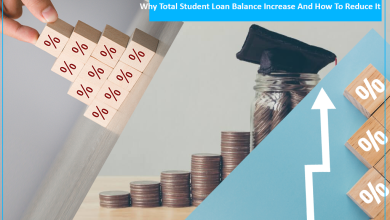3 Important Things To Consider Before Taking A Gap Year

3 Important Things To Consider Before Taking A Gap Year
Taking a gap year has been recognized by a reasonable number of high school graduates as a pattern of consideration. A recent survey found that 35% of recent high school grads were thinking about going to college part-time or taking a gap year.
As your friends choose which colleges to apply to, you might be thinking, “Is it wise to take a gap year?” It’s okay if some folks have no interest in taking gap years at all!
However, this is the perfect question to ask if you find the concept of a gap year or a year off from education between high school and college interesting.
However, before you consider that, you should assess yourself enough to know if you know the listed concepts below.
Gap Year Meaning, Cost & Risk of Taking a Gap Year
A year off between high school graduation and college enrollment is referred to as a “gap year.” Some students sign up for official gap year programs and set off on a journey of self-discovery that includes helping locally and abroad, as well as touring the world. Some pupils work unpaid internships.
It is possible to take a year off before attending college. On the other hand, some students who choose to work rather than take part in an official gap program may end up giving up on their college ambition completely. Particularly for pupils from low-income homes, this is accurate.
Although formal gap year programs have numerous advantages, they can also be very costly. The cost of a gap year program might potentially exceed $50,000.
3 Important Things To Consider
-
Advantages of a Gap Year
-
Disadvantages of a Gap Year
-
Alternatives to Taking a Gap Year
Advantages of A Gap Year
1. Explore Other Skillful Experiences
Though it differs from high school in several aspects, college may be an incredible experience.
You may have the opportunity to experience something completely different after high school by taking a gap year, which will give you a new perspective and a greater appreciation for the classroom system.

You can explore your potential and try it out in a year and see how far it goes, believe me, some people find other skillful talents they have that financially accelerate their college experience productively.
Whether you choose to study veterinary medicine or teach in China, a gap year is a great way to pick up new skills. By taking a gap year before attending college, you will be able to utilize those talents immediately upon graduation and reap the rewards!
2. Enough Time To Enjoy & Be Financially Ready For College
A college education is expensive. If you spend the year working, having an extra year to prepare can help you make more money.
It can also offer you additional time to apply for financial aid, such as scholarships, that can lower the cost of your tuition. If you haven’t yet received financial aid that satisfies your needs, it can also provide you additional time to apply to colleges that might be able to provide you with more advantageous packages.
A gap year taken before attending college might be a pleasant, unoccupied period to unwind without worrying about other obligations.
Most people have fantasies of living abroad for a year and experiencing something completely new. However, delaying your college education to take that vacation later in life can have consequences.
3. Early And Beneficial Experience
After high school, taking a gap year can be a fantastic way to gain more experience in a particular field and determine if it’s something you want to pursue.
Additionally, this experience might help you stand out from the competition in your sector when applying for jobs and internships.
Verifying if investing is a suitable fit for a career that requires a lengthy and costly educational path before committing to it can be a fantastic idea.
You may find it simpler to be adaptable, see new places, and pick up new talents at this point in your life. Programs for your gap year following high school are created with you in mind, thus experience requirements are frequently waived.
Being young and inexperienced is often viewed as a drawback in the workforce. But these qualities can be a major advantage in many gap year programs!
Perhaps because of quick enrolling into programs that aren’t a great fit, more and more students are taking five years or more to complete their college education. It is time well spent to take a gap year since it can help you gain the knowledge and experience necessary to select the college and program that are right for you!
Disadvantages Of A Gap Year
1. Not ready to take a Gap
One way to spend a gap year is to work in your hometown and spend the year at home while taking online courses to develop a new skill.
It can entail relocating to a different city and living with a family member while pursuing an internship. It may also entail packing only what fits into your backpack and leaving for a foreign journey. There are countless options!
If you’re prepared for a gap year experience such as studying abroad in Asia, working on a farm in Denmark, volunteering in the Middle East, or interning in America, only you can decide.
A gap year abroad may be too much for you if you’re anxious and unprepared to manage your schedule. However, it should seem tough and a little unsettling.
2. Require Heavy And Constant Research
To make the most of your year off before college, you need to research extensively and create a plan that works for you. Refrain from having someone conduct all of your research.

Now is the ideal moment to select the ideal match for you. You may not be prepared to fully utilize a gap year if you are unwilling to work hard.
If you need assistance, you can create your gap year by combining programs that interest you or use MyGoAbroad to select programs that are organized for an entire year!
3. Cost of Being Irresponsible and Lack of Determination
A gap year might not be the greatest option for you if you’re the type of person who requires external deadlines to get anything done and who will gladly spend the entire day in bed if no one else forces you to get up.
You must be able to drive yourself to develop, learn, seize opportunities, and get ready for the next phase of your life if you want to get the most out of your gap year!
The benefits and drawbacks of taking a gap year following high school mostly rely on your ability to customize the year to your preferences.
4. Require Choice Clarification and cost-effectiveness
Although gap years have become more and more popular in the US in recent years, more conventional family members or professors might not fully comprehend your decision.
That’s perfectly acceptable, but it does mean you’ll need to tell those close to you about your plans, and you may even feel compelled to defend them to others.
If you decide to take an organized gap year program instead of going straight to a four-year program and finishing on time, the total cost of the gap year will be higher.
Nonetheless, taking a gap year can help you minimize your college tenure, improve your educational objectives, and incorporate time spent working and earning money.
Alternatives To Taking A Gap Year
1. Consider Part-time Programs And Student Loan
You don’t have to wind up taking a gap year even if your family’s situation demands that you work full-time. You might think about attending a part-time college while working shortly.
But try not to allow your work to interfere with your academic performance. For the records, financial help is also available to part-time students.

Taking out student loans is a better option than taking a gap year if you need to pay off any debt. As long as you don’t take on more debt, getting a college degree is worth the cost.
The majority of financial experts advise keeping your overall student loan debt at or below your starting pay after graduating from college.
2. Financial Aid Award
Think about appealing your financial assistance award before deciding to take a gap year. You should file an appeal of your financial aid award if your family’s financial situation has changed.
While the process for submitting a financial aid appeal varies from college to college, most will need supporting documentation to validate these adjustments. Get ready for this. Your total financial aid award may increase in the end, depending on your situation.
3. Consider Affordable & Nearby Colleges
If the expense of college still seems excessive to you even after taking loans into account, you may want to look into less expensive options. You might enroll in a two-year college instead of taking a gap year.
Compared to a four-year college, this is frequently less expensive. Furthermore, you can still transfer to a four-year university at a later time.
I would highly advise finding out about any articulation agreements two-year colleges have with four-year colleges and universities before deciding to enroll there.
The acceptance of your credits at the senior institution is ensured by this agreement, often known as the transfer pathway. Every two-year college will keep track of the colleges they have this arrangement with on file. These agreements may only apply to specific majors in various circumstances.
Consider living at home while attending college to lower your total cost of attendance rather than taking a gap year. You might easily save a lot of money a year by staying at home.
As per the 2019 Trend in College Pricing study by the College Board, the average cost of room and board for a four-year public institution is $11,510, while for a private university, it is $12,990.














